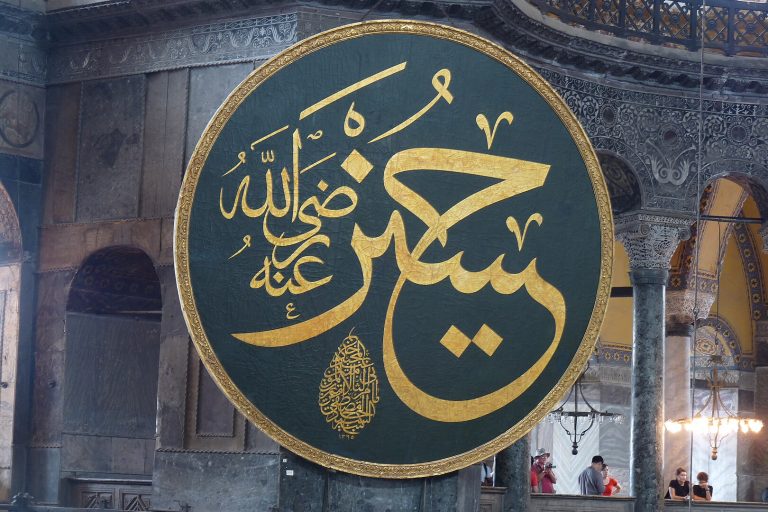The Essence of The Pillars of Islam: A Spiritual Journey
Unlock the Secrets to Inner Peace and Divine Connection
Explore the profound significance of The Pillars of Islam: and embark on a spiritual journey that transcends the boundaries of time and space. Discover the essence of each pillar, delve into their spiritual implications, and embrace the transformative power they hold.
Introduction:
Embarking on a journey of spiritual enlightenment often requires understanding the foundational principles that guide one’s faith. In Islam, The Pillars of Islam: stand as the cornerstone of practice, offering believers a pathway to divine connection and inner peace. This comprehensive guide delves deep into the significance of each pillar, unraveling their spiritual essence and practical implications in the lives of Muslims worldwide.

The Pillars of Islam:
Shahada – Bearing Witness to the Oneness of God
The Essence of Shahada:
At the heart of Islamic faith lies the proclamation of the Shahada, affirming the belief in the Oneness of God and the prophethood of Muhammad (peace be upon him). This declaration serves as a constant reminder of the monotheistic nature of Islam, emphasizing the indivisible unity of Allah.
The Spiritual Journey of Shahada:
The journey of Shahada transcends mere verbal acknowledgment; it encompasses a profound spiritual awakening. By bearing witness to the Oneness of God, believers establish a deep and personal connection with the Divine, aligning their hearts and souls with the eternal truth.
Embracing Shahada in Daily Life:
Living out the Shahada extends beyond recitation; it permeates every aspect of a believer’s existence. From acts of worship to interactions with others, the essence of Shahada guides Muslims to uphold the principles of faith, compassion, and righteousness.
Salah – Connecting with the Divine through Prayer
Understanding Salah:
Salah, or ritual prayer, serves as a direct channel of communication between the believer and their Creator. With its prescribed times and postures, Salah offers a sacred space for spiritual reflection, supplication, and submission to Allah.

The Spiritual Significance of Salah:
Through the performance of Salah, believers transcend the confines of the material world, immersing themselves in the remembrance of Allah. Each bow, prostration, and recitation deepens the bond between the worshipper and the Divine, fostering a sense of tranquility and humility.
Incorporating Salah into Daily Routine:
Integrating Salah into daily life instills a sense of discipline and devotion, anchoring believers in a rhythm of prayer and reflection. By prioritizing Salah amidst life’s demands, Muslims cultivate a profound sense of spiritual connectedness and mindfulness.
Zakat – Cultivating Compassion through Charity
The Essence of Zakat:
Zakat, or almsgiving, exemplifies the Islamic principle of social responsibility and compassion towards those in need. As a form of obligatory charity, Zakat serves to purify wealth and alleviate the hardships of the less fortunate, fostering a more equitable society.
The Spiritual Impact of Zakat:
Beyond its material benefits, Zakat carries profound spiritual significance, purifying the hearts of believers from greed and selfishness. By giving generously to those in need, Muslims cultivate empathy, gratitude, and a deeper connection to the broader community.
Practicing Zakat with Intention and Generosity:
Practicing Zakat goes beyond financial transactions; it involves a heartfelt commitment to uplifting the marginalized and vulnerable. By giving with sincerity and generosity, believers fulfill their duty to Allah and contribute to the collective welfare of society.
Sawm – Nurturing Self-Discipline through Fasting
The Significance of Sawm:
Sawm, or fasting during the month of Ramadan, serves as a spiritual journey of self-discipline, reflection, and renewal. By abstaining from food, drink, and worldly distractions from dawn until dusk, Muslims embark on a profound inner journey of purification and spiritual growth.
The Spiritual Dimensions of Sawm:
Fasting during Ramadan is more than a physical act of restraint; it is a transformative spiritual experience. Through self-denial and increased devotion, believers deepen their connection to Allah, seeking forgiveness, guidance, and spiritual elevation.
Embracing Sawm as a Path to Spiritual Renewal:
Embracing the discipline of Sawm empowers believers to transcend their worldly desires and focus on spiritual nourishment. By immersing themselves in acts of worship, reflection, and charity, Muslims emerge from Ramadan spiritually rejuvenated and closer to their Creator.
Hajj – Embarking on the Sacred Pilgrimage
The Meaning of Hajj:
Hajj, the annual pilgrimage to the holy city of Mecca, is a profound manifestation of unity, humility, and devotion among Muslims worldwide. It represents a sacred journey of spiritual purification and renewal, encompassing rituals that trace back to the time of Prophet Ibrahim (peace be upon him).

The Spiritual Journey of Hajj:
Embarking on the pilgrimage of Hajj is a transformative experience that transcends individual identity and worldly attachments. Pilgrims undertake a series of rites and rituals that symbolize spiritual rebirth, forgiveness, and submission to the will of Allah.
The Universal Brotherhood of Hajj:
Hajj exemplifies the unity of the Muslim Ummah, bringing together people from diverse backgrounds and cultures in a shared journey of faith. Regardless of social status or nationality, pilgrims stand as equals before Allah, united in their devotion and reverence.

Frequently Asked Questions (FAQs):
What is the significance of The Pillars of Islam:?
The Pillars of Islam: represent the fundamental acts of worship and submission that form the core of Islamic practice. They serve as a framework for spiritual growth, guiding believers on a path of devotion, discipline, and divine connection.
How do The Pillars of Islam: contribute to spiritual development?
Each pillar of Islam offers unique opportunities for spiritual growth and self-transformation. From affirming the Oneness of God to practicing charity and self-discipline, The Pillars of Islam: provide a holistic framework for nurturing faith, character, and moral integrity.
Are The Pillars of Islam: obligatory for all Muslims?
Yes, The Pillars of Islam: are obligatory acts of worship that form the foundation of Muslim practice. They are incumbent upon all adult, sane Muslims who are physically and financially capable of fulfilling them.
What is the significance of performing Hajj?
Hajj holds profound spiritual significance for Muslims, as it symbolizes unity, humility, and submission to the will of Allah. By undertaking the pilgrimage, believers seek forgiveness, spiritual purification, and divine blessings.
How does Zakat contribute to social welfare?
Zakat plays a crucial role in addressing social inequality and poverty within the Muslim community. By redistributing wealth from the affluent to the needy, Zakat fosters economic empowerment, social cohesion, and compassion towards the less fortunate.
What spiritual benefits are associated with fasting during Ramadan?
Fasting during Ramadan offers numerous spiritual benefits, including increased mindfulness, self-discipline, and spiritual awareness. By abstaining from food, drink, and worldly distractions, believers cultivate a deeper connection to Allah and seek spiritual purification.
Conclusion:
The Pillars of Islam: represent the spiritual foundation upon which the faith of millions of Muslims around the world is built. From the declaration of faith to the sacred pilgrimage of Hajj, each pillar embodies principles of devotion, discipline, and divine connection. By embracing and practicing The Pillars of Islam:, believers embark on a transformative journey of spiritual growth, inner peace, and closeness to their Creator.







